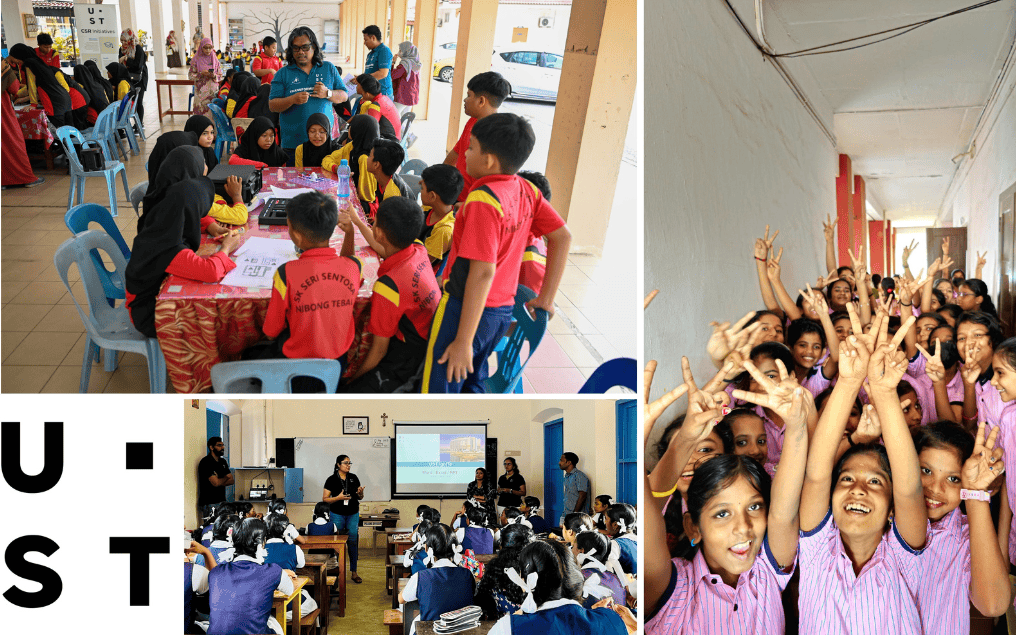Background
UST, a global digital transformation leader, has long embedded corporate social responsibility and sustainability into its core mission. Last year, UST took away a Business Culture Award for its efforts to integrate business, community and environmental sustainability, achieving significant progress toward its Net Zero commitment. Building on this success UST has continued to expand its initiatives, focusing on digital transformation to drive social inclusion and community development. By leveraging technology UST addresses challenges in education, livelihood and health for the most vulnerable communities, making a profound global impact.
Approach
UST scaled up its approach by merging technology with social inclusion, particularly in education and livelihood programmes. A cornerstone of this strategy is the creation of digital ecosystems in public schools in rural and urban slum areas across India, Malaysia, the USA, Mexico and the UK. These ecosystems include smart classrooms, digital libraries and computer labs, helping over 63,000 students from underprivileged backgrounds access better learning opportunities.
In line with its goal of empowering women and people with disabilities UST launched extensive IT/ITES-based skills training programmes. More than 550 women and 195 individuals with disabilities have undergone training in technology-based skills with 90% securing employment through community-based livelihood initiatives or internships through UST’s Step IT Up initiative, which helps disadvantaged and underrepresented communities enter the tech world. UST’s efforts extend beyond education into healthcare, with programmes providing mobility devices and assistive technology for people with disabilities, allowing them to maintain their livelihoods and independence.
“UST’s digital transformation impacted nearly 118,000 lives globally, empowering vulnerable communities through education and livelihood programmes”
UST’s work is grounded in strong partnerships with over 50 non-profit organisations globally, ensuring the programmes’ reach and effectiveness. All projects are aligned with the UN Sustainable Development Goals and UST employs an automated platform to track progress, ensuring real-time impact assessment and scalability.
Outcomes
In 2023, UST’s initiatives touched nearly 118,000 lives across nine countries. The digital transformation of 152 schools improved learning environments, contributing to a 20% increase in enrolment in government schools across India, Malaysia and Mexico. The IT skills training programmes not only provided job opportunities but also fostered long-term employability for women and people with disabilities. Additionally, UST’s community health initiatives provided medical devices to 1,680 individuals, improving their mobility and quality of life.
These initiatives demonstrate UST’s commitment to driving social change through digital transformation, building a sustainable, inclusive future for all. Its efforts continue to evolve, scaling across geographies to bring technology-driven empowerment to the world’s most disadvantaged communities.

